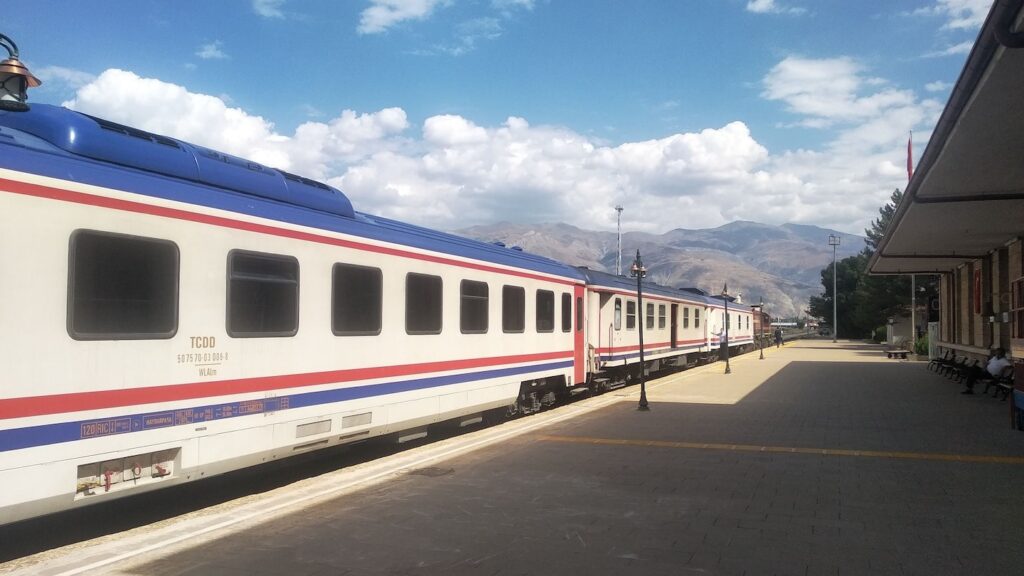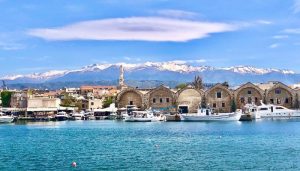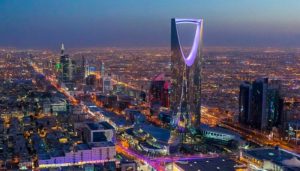
In the concluding leg of our extensive rail adventure series, we embark on the Doğu Express, a train journey that heads eastward from Ankara, the Turkish capital, toward Kars and the Georgian border
Karim, a masseur at Ankara’s historic Tarihi Karacabey Hamami, one of the oldest bathhouses in the Turkish capital, chuckles and says, ‘You can have whatever you want to pay me for,’ as we stand facing each other. Both of us are draped in small towels, and Karim’s friendly grin adds to the casual atmosphere.
My choice is to indulge in an invigorating skin scrub and massage within the hammam’s steamy communal space, where the soothing ambiance is occasionally interrupted by the scent of tobacco on the breath of other patrons.
Preparing for Turkey’s longest train journey ahead, I require a thorough massage to release the tension in my muscles. A full day and night on a slow train can be quite uncomfortable for someone with a lanky frame.”
Operating daily in both directions, the Doğu Express, where “doğu” translates to east in Turkish, covers a distance of 800 miles, connecting Ankara to the city of Kars. Beyond Kars, it’s just a two-hour, 100-mile drive north to reach Turkey’s border with Georgia. This means that, in addition to exploring the depths of eastern Turkey, this train offers an adventurous overland passage into the Caucasus region, a journey that typically involves flying from Britain to Tbilisi via Istanbul.
Dating back to the 1930s, the Doğu Express route remained relatively obscure outside of Turkey for many decades. Ankara was overshadowed by Istanbul as a tourist destination, and eastern Turkey was even more under the radar. Then, in the mid-2010s, travel vloggers captured the scenic beauty of the route, showcasing icy station platforms and mysterious lakes in their videos. This newfound exposure boosted the Doğu Express’s popularity, in step with their growing viewership. Travel companies secured an inventory of discounted tickets (a mere 508 lira or £15 for a berth), and cabins started selling out within seconds, turning the train journey into a sought-after destination in itself.
In response to the surging demand, Turkish State Railways introduced the Touristic Doğu Express in 2019. This special service operates three times a week, exclusively from December to March. It follows the same route but includes extended stops, enabling passengers to explore attractions like Karanlık Canyon and the charming, mosaic-adorned city of Erzincan. This development rapidly transformed Turkey, which had not traditionally been considered a prime train travel destination, into a coveted location for some of Europe’s most highly sought-after rail tickets.

Sena elaborates, “The fairy lights… you can spot them in every Instagram photo. Taking this train is something we’ve always dreamed of.”
Following a rejuvenating session at the Ankara hammam and savoring a delightful meal at Ciğerci Aydın restaurant (where I couldn’t resist ordering the yoghurt-drenched adana kebab twice), my companion and I enter the older section of the city’s train station, which stands in contrast to the recently renovated part adorned with a Burger King.
Despite opting for the standard train instead of the tourist variant, the platform buzzes with excitement from fellow travelers. They proudly hold up signs that read “Doğu Ekspresi” as if they were banners for photo opportunities. Among them, there’s Sena, a student from Ankara, who kindly invites me into her cabin, shared with her friend Selcan, and a copy of Agatha Christie’s “Murder on the Orient Express.” Fairy lights add a cozy touch to the cabin’s ambiance.
As we traverse the countryside, the moonlight casts a gentle glow on the snow-covered fields. Occasionally, I spot stray dogs among the trees, their wagging tails contrasting with their white fur. Knowing that we have a full day of gazing out the window ahead, my friend and I improvise a platform using our cabin’s bunk ladder, balance an iPad on it, and start up Netflix.
We reserved all four berths because the booking system mandates that mixed-gender groups must book an entire cabin to prevent individuals from different parties sharing a confined space. While it’s regrettable that some berths remain unused given the high demand, it does ensure a night without disturbances.
The heart of a night train experience lies in its dining carriage, so I relocate there in the morning. Friendly carriage staff serve kumru sandwiches, a delightful combination of toasted cheese, tomato, and sausage. Some middle-aged tourists from Germany inform me that they flew to Turkey specifically for a tour centered around the Doğu Express. In Ankara, they purchased a generous quantity of gooey baklava, which I find myself eyeing until they kindly offer me a slice.
Tbilisi is generating a significant amount of buzz as the “new hot city,” and the excitement is well-founded.
Fabrika hosts backpacker-fueled parties and serves delicious ramen, but what truly captivates me in Tbilisi are the remnants of the city’s history. In between my adventures in dining, I find solace in the Orthodox Christian churches scattered throughout the city center, where candlelit moments of tranquility await.
The open-air market at Dry Bridge never fails to amaze with its assortment of quirky items. During my 2022 visit, I accompanied a Russian friend who had moved abroad due to her anti-Putin stance. She radiated joy when she stumbled upon a 1970s crockery set, reminiscent of her grandmother’s. This time around, I decided to spend 10 gellari (equivalent to about £3) on a ring, admittedly not made of silver, featuring a comically oversized, fierce bear head.
As night falls, bear ring securely on my finger, I make my way to a lively pro-Ukraine demonstration on Rustaveli Avenue, named after the medieval Georgian poet Shota Rustaveli. A video message from Kyiv’s mayor, Vitali Klitschko, plays to a crowd of thousands. The former heavyweight boxing champion expresses gratitude to Georgians for their support—a support deeply rooted in shared experiences. In 2008, Russia invaded Georgia, a country that had regained independence in 1991, annexing two regions still occupied by Russian soldiers. Before gaining access to Fabrika’s co-working space, I’m required to sign a statement affirming my belief that Putin is a war criminal.
I opt for the swift five-hour train journey from Tbilisi to Batumi, the largest city on Georgia’s western coastline. While passengers on the Tbilisi train platform use pebbles to fend off aggressive stray dogs, the atmosphere inside the double-decker carriage is markedly more hospitable. These trains, with their sleek and contemporary design, border on luxurious, yet a first-class seat with reclining option is available for just £22.50.
I had previously stayed in Batumi, and I didn’t find the abundance of high-rise hotels overlooking the Black Sea all that captivating. Consequently, I decide to take a taxi to the Turkish border (a different border from the one I used to enter Georgia), followed by a bus journey south to Erzurum. The five-hour bus ride reaffirms my enduring fascination with the picturesque vistas of snow-capped mountains dotted with pine trees.
To complete the circle, I board the Doğu Express once more for the journey back to Ankara, anticipating another round of sociable moments lubricated by baklava. However, unlike my previous experience where I shared the dining car with foreign tour groups and quirky domestic tourists, this time it’s just me, some leftover crumbs, and a solitary man engrossed in YouTube videos. There are no fairy lights adorning his window. It turns out that many Doğu Express travelers take the train eastward and then fly back home from Kars – a detail rarely mentioned on Instagram.
The tranquil, conversation-free ride feels like the subdued aftermath of the exhilaration of the eastbound train journey. I savor a few final hours gazing at the snowy mountains, which, to my delight, remain captivating and far from boring. Eventually, the train pulls into the same Ankara platform where Sena and Selcan, the two students, were proudly displaying their Doğu Ekspresi signs just a few weeks earlier.



